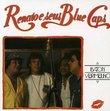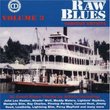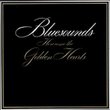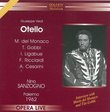| All Artists: George Frideric Handel, Robert King, Lynne Dawson, Claron McFadden, Charles Daniels, Michael George, Catherine Denley, The Choir of New College Oxford, The Choir of the King's Consort Title: Handel - Alexander Balus / Denley, George, C. Daniels, Dawson, McFadden, The King's Consort Members Wishing: 1 Total Copies: 0 Label: Hyperion UK Release Date: 10/14/1997 Album Type: Import Genre: Classical Styles: Opera & Classical Vocal, Historical Periods, Baroque (c.1600-1750) Number of Discs: 2 SwapaCD Credits: 2 UPCs: 034571172415, 064571172412 |
Search - George Frideric Handel, Robert King, Lynne Dawson :: Handel - Alexander Balus / Denley, George, C. Daniels, Dawson, McFadden, The King's Consort
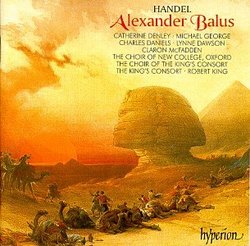 | George Frideric Handel, Robert King, Lynne Dawson Handel - Alexander Balus / Denley, George, C. Daniels, Dawson, McFadden, The King's Consort Genre: Classical
Of the four militaristic oratorios Handel wrote in the 1740s, Joshua, the Occasional Oratorio, Judas Maccabeus, and Alexander Balus, this last, based on an episode from the apocryphal book of the Maccabees, is the only rea... more » |
Larger Image |
CD DetailsSynopsis
Amazon.com Of the four militaristic oratorios Handel wrote in the 1740s, Joshua, the Occasional Oratorio, Judas Maccabeus, and Alexander Balus, this last, based on an episode from the apocryphal book of the Maccabees, is the only really uninspired one of the lot. The best numbers are recycled from Handel's marvelous La Resurrezione of more than 30 years before--this is no problem in itself, but the rest of the music sounds all the duller in comparison. Still Hyperion, Robert King, and the King's Consort deserve praise for seeing to it that all of Handel's oratorios get high-quality performances on disc. Handel completists will want this, especially for Lynne Dawson's delicious performance as the Egyptian queen. --Matthew Westphal Similar CDs
|
CD ReviewsNot Joshua, not Saul, but perhaps somewhere in between . . . Dalua | the UK | 07/20/2003 (5 out of 5 stars) "It would be a great shame, this being the oratorio's sole recording to date besides one dreadfully amateurish recording by Rudolph Palmer, if this recording were not up-to-scratch. "Alexander Balus" is full of wonderful music, the vehicle for a very satisfying plot. Fortunately, this recording is excellent. Though it has been referred to as one of several distinctly militaristic oratorios (such as Judas Maccabaeus and Joshua), the referrence is misleading because Balus contains a dramatic thread one can follow and appreciate without too much distraction, and one that is not really dominated by military action in the slightest. To illustrate my point I've summarised the plot in the next four paragraphs.Alexander Balus, who has recently conquered the throne of Syria, offers his friendship to Ptolemee, the King of Egypt. Love soon blossoms between Alexander and Ptolemee's daughter Cleopatra. The highlights of the opening scene include Cleopatra's air "Hark! hark! he strikes the golden lyre" the chorus of Asiates' "Ye happy nations round". My favourite part of Act I is Scene Three, when Cleopatra and her attendant, Aspasia, discuss and anticipate the merits of true love in a lovely series of arias culminating in a stunning, joyful and utterly thrilling duet "O what pleasures past expressing". For this duet alone, it is beyond belief that Alexander Balus is so little represented on the stage and in the recording studio. In Act II Alexander asks Ptolomee for his daughter's hand in marriage and Ptolomee obliges, sending word that his bride awaits him at Ptolomais. However, a courtier then appears bringing word that there is a plot against Alexander's life - the would-be assassin being none other than Jonathan, chief of the Jews and Alexander's friend and brother! Alexander is horrified, and Jonathan dismayed by the slight; even Cleopatra (still awaiting Alexander's arrival) becomes apprehensive, though she knows not why, and is comforted by Aspasia. Next, Ptolomee's scheming is revealed - "yes, I've fawn'd, but only to devour." The wedding takes place as Act II draws to a close.Act III opens with Cleopatra awaiting Alexander in a garden; she sings a gentle air, "Here amid the shady woods". The peaceful scene is interrupted by the entrance of ruffians sent by Ptolomee to return his daughter to him so that she may be married to Demetrius, whom Ptolomeee intends to install on Syria's throne as a puppet monarch. There follows the reaction of Alexander (the marvellous "Fury with red sparkling eyes"), Jonathan and Aspasia as Ptolomee's scheming treachery becomes apparent.Meanwhile, Cleopatra will have none of her father's attempts to paint Alexander the villain and he the concerned father - and Ptolomee leaves for battle. Soon Cleopatra is brought news of her husband's death - the lamentative aria that follows, "O take me from this hateful night", is truly one of the most haunting that Handel ever wrote. Next she is brought the news of the death of her father too - and by now she has moved beyond grief and asks only for the gift of serenity in the unique and deeply, deeply moving "Convey me to some peaceful shore".As for the quality of the recording, I have already said that it's excellent. Catherine Denley is a very convincing Alexander, delivering a flawless vocal and dramatic performance. Lynne Dawson, one of Britain's best-loved sopranos, sings the part of Cleopatra wonderfully, and Claron McFadden is very well suited to the part of Apsasia. Michael George is suitably villainous, though he and, especially, Charles Daniels could have done with being in slightly better voice (not that either of them were in bad voice as such, but they, or Daniels at any rate, just sounded a little constricted). Robert King's conducting and the King's Consort's performance is exciting, flowing and thoughtful in terms of the drama, and the choir does a good job too. The recording lacks some of crispness that one is used to from recent recordings on Erato, for example, and may not exhibit the finesse or firm grasp one associates with William Christie or Marc Minkowski, but that's me thinking wishfully how nice it would be if either of those conductors would record it . . . That said, this recording is well-worth the investment and, though I would like to give it four-and-a-half stars in anticipation of an ideal recording, the five stars I have given it are well-deserved." More Joyful than some of Handel's other Oratorios B. Marold | Bethlehem, PA United States | 11/28/2006 (5 out of 5 stars) "'Alexander Balus' with music by George Frideric Handel, to a libretto by Thomas Morell confirms in my mind the notion that Handel would put the Manhatten Yellow Pages to music for chorus and it would come out sounding glorious. This is even more true of this work than it is for the somewhat longer 'Joseph and his Brethren' if only because there is proportionately more choral music than recitives in this recording. Another favorable comparison to Hyperion's 'Joseph' is that Morell's English text is even easier to understand. Having just now listened again to Handel's masterpiece, 'The Messiah', I can appreciate why 'Alexander Balus' and 'Joseph...' and all of Handel's other Oratorios have slipped into obscurity, as 'Messiah' is so much better overall, and transcendently beautiful in the famous Halleujeh chorus. But if you simply can't get enough of Herr Handel in the Messiah, this is a great 'extra' attraction." JONATHAN AND CLEOPATRA DAVID BRYSON | Glossop Derbyshire England | 02/17/2007 (5 out of 5 stars) "Alexander Balus dates from 1747, by which time the threat from Bonnie Prince Charlie to the Hanoverian monarchy had been well and truly suppressed. It has only faint echoes of the anxious and defensive bellicosity that we find in Judas Maccabaeus, Joshua and especially The Occasional Oratorio. Mr impresario Handel and his librettist the Rev Morell were really back to business as usual following the jingoistic Occasional Oratorio, although it may be that they felt a commercial need to revert to greater militarism, and accordingly did so in Joshua, written just afterwards.
Morell's text is based on the First Book of Maccabees. It differs from most of the oratorios in keeping the chorus mainly to a role of setting the scene and summing up at the end of each act or scene, much as in Hercules. There is little overt drama or action until near the end of act II, but the golden flow of Handel's infinite musical inspiration keeps me mesmerised all the way. He displays a formidable box of instrumental tricks in Cleopatra's long aria `Hark! Hark! He strikes the golden lyre', but this is only one in a glorious series of solos until a new note is introduced with the attempt by the Sycophant Courtier to sow discord, after which the general tone becomes not only more varied but more solemn. The chorus `O calumny' that ends act II scene 1 is a very different proposition from the magnificent earlier choruses, and Jonathan's aria `To God who made the radiant sun', and later Cleopatra's `O take me from this hateful light' are among the most awesome that Handel or any man ever conceived. The part of Balus is an alto part, sung here by Catherine Denley. She handles it very well indeed, but the really striking roles are those of the Israelite prince Jonathan and the Egyptian Ptolemy's daughter Cleopatra, superbly put across by Charles Daniels and Lynne Dawson. In fact all five principals are excellent, pure in tone and impeccable in intonation, and so are the three minor parts sung by members of the choir of the King's Consort. The choirs have boy trebles and altos, and their tone is strong, contributing due weight to Handel's choral writing, incomparably the greatest there can ever have been. The instrumentalists are eminent specialists performing to the peak of their talent, and the recorded sound, from 1997, is beyond criticism. As usual with Robert King's productions, he contributes his own admirable liner note, and both this and the libretto have translations into French and German. He does not actually tell us why the Israelite princes are invoking Mithra in the early stages of the work, but this theological aberration is explained and put right in the sublime aria for Jonathan that I mentioned above, in which Jehovah is restored to his rightful place. We have the opportunity now to restore Handel to his rightful place also, and my bewilderment at how this supereminent musical creator ever sank below the horizon as he did is only matched by my relief at having lived through the age that is rectifying the matter. Before long my collection of his oratorios will be complete, and that is a project I would like to exhort as many as possible to join me in. There are 17 of them on my counting, which is the `best' I would not know how to assess, but if, say, 13 or 14 of them are equal first this would be one of the 13 or 14." |

 Track Listings (31) - Disc #1
Track Listings (31) - Disc #1